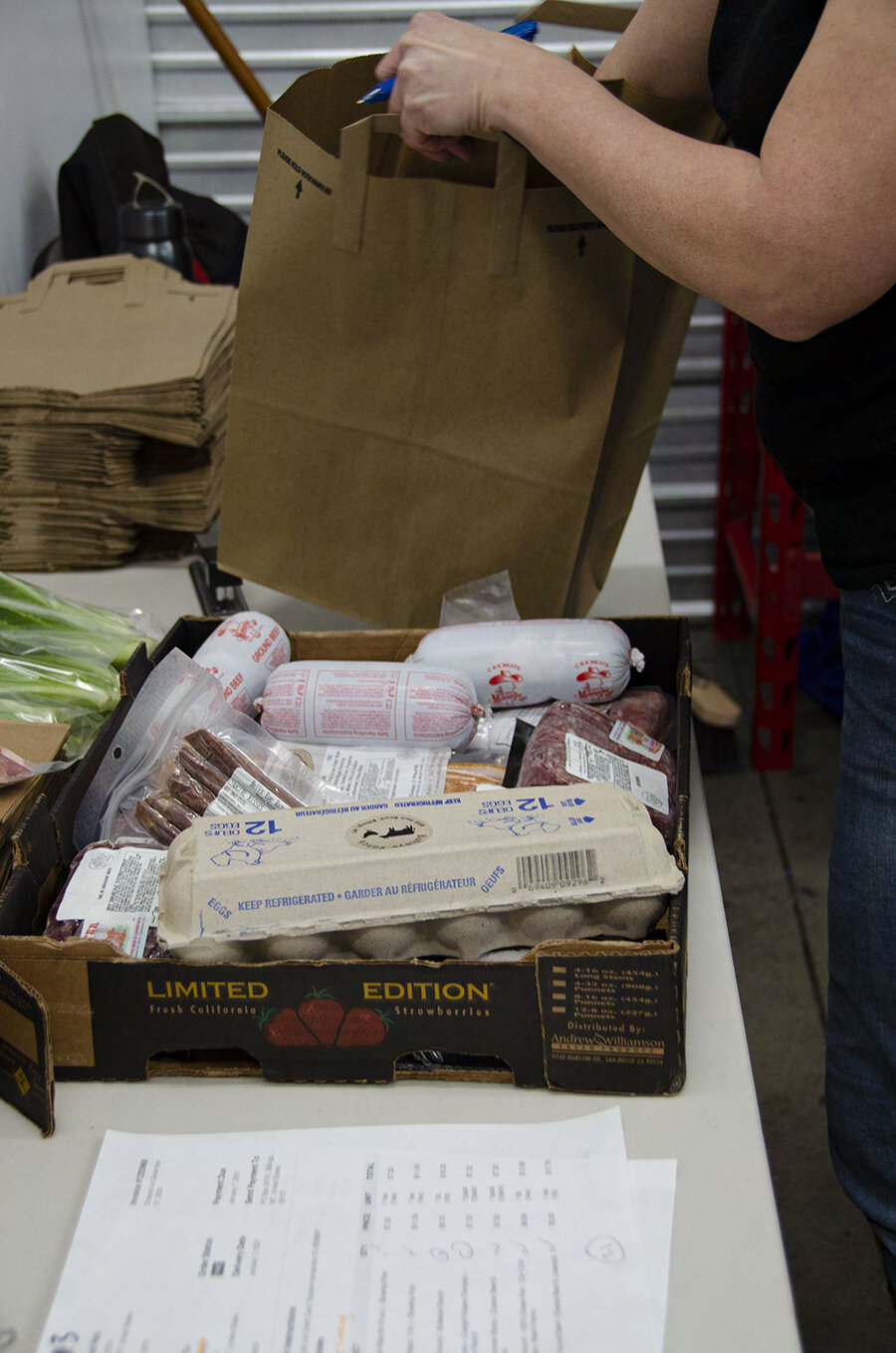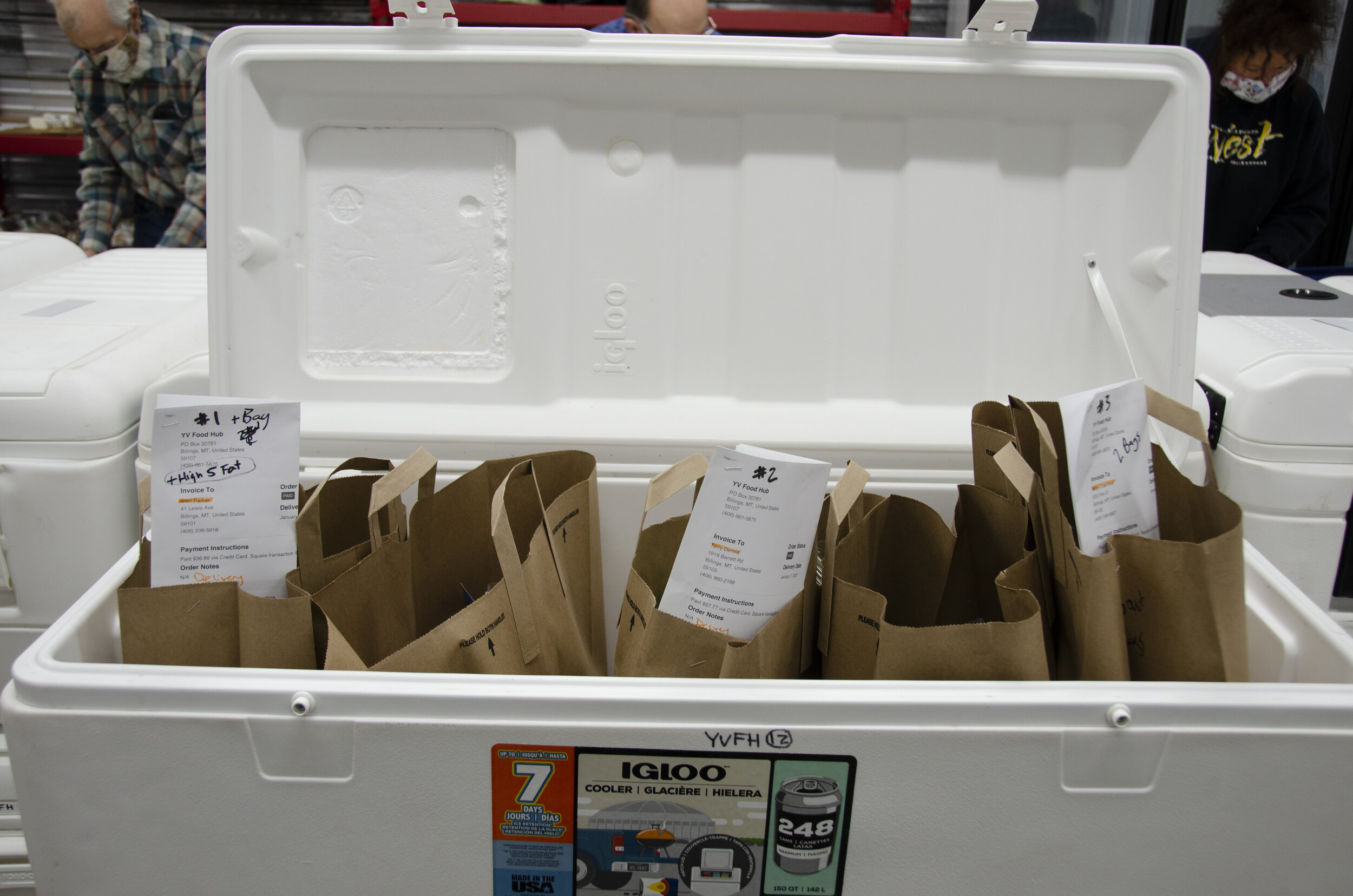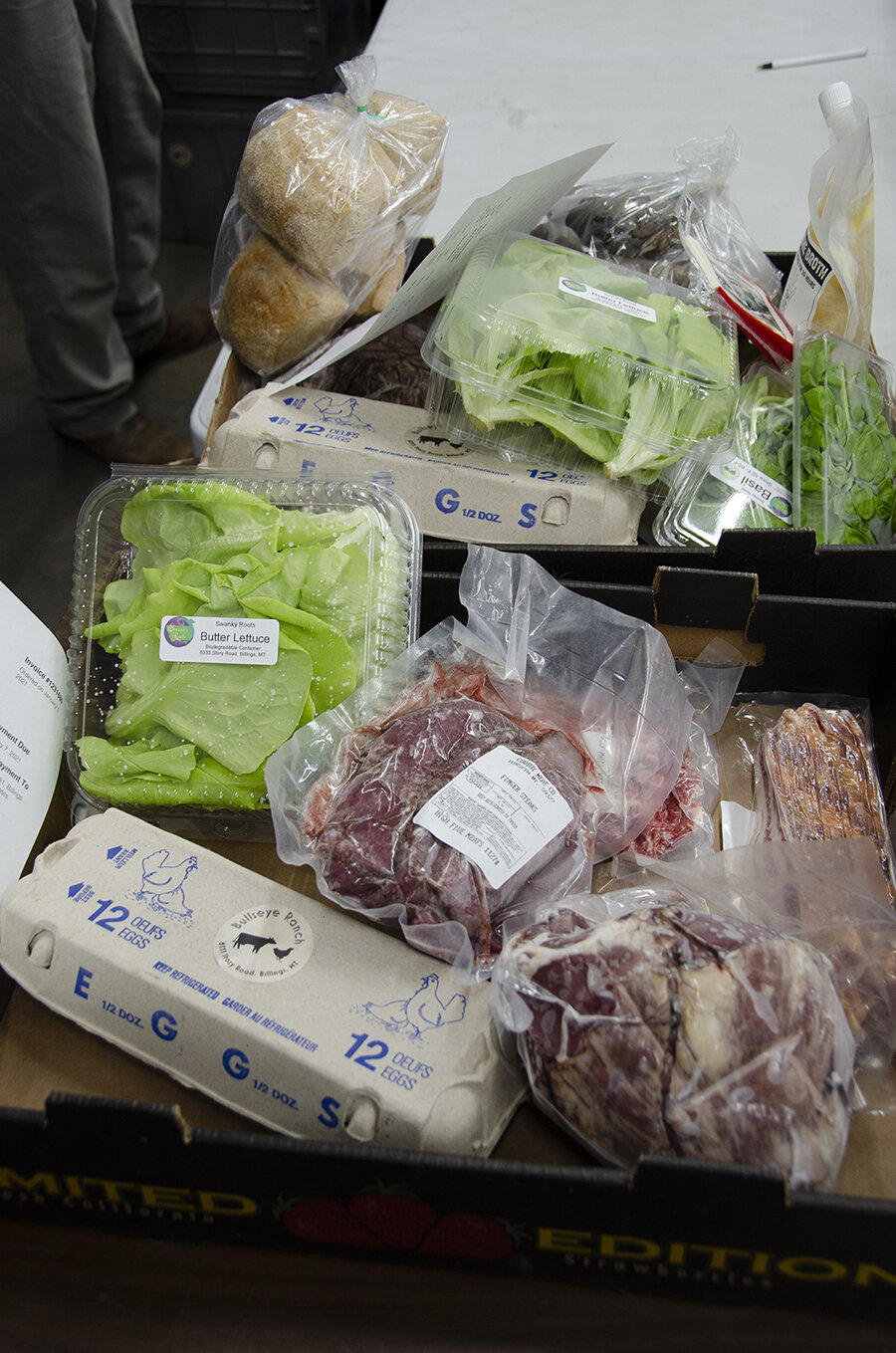Gathering Groceries with the Yellowtone Valley Food Hub
A Different Look at Food Suppliers
Written by Cyd Hoefle
Photography by Stu Hoefle
For Tom Tschida of Nash Farms in Fromberg, joining the Yellowstone Valley Food Hub was another way to showcase everything he and his family produce on their 120-acre property. Tom and his parents raise 100 percent grass-fed beef, and with the demand growing, he thinks he’s found a great niche.
Still, he understands the economics of agriculture and the need to diversify. In addition to his beef, Tom also has an orchard with more than 60 trees he hand-planted. When the fruit is ready, Tom offers apples, plums, peaches and sour cherries. But that’s not all. Tom also sells duck eggs from his own flock.
“There’s a market for everything we sell,” Tom said. “The hub just makes it way easier for us to find customers.”
“There’s a lot of people that want to support local but have no idea how to do that. We’re educating them on what’s available in our community and how they can have great food that’s been produced right here.”
- Verronaka Evenson
The Yellowstone Valley Food Hub was started in 2017, when 11 producers brainstormed about ways to reach customers. They knew education was at the top of the list. They felt they could bring local producers and customers together and educate both sides: the customers on what is available locally and the producers on the specifics of what customers want. Finding a balance helps producers stay in business and money stays in the community. It’s critical for smaller ranchers and farmers in Montana to know they can count on local support to sustain their livelihood.
For Sara Hollenbeck, of Molt, the farmers’ market in downtown Billings was the best way for her to promote her lamb. Sara and her husband launched High Five Meats several years ago and had been successfully promoting it using social media and attending farmers’ markets. But when the opportunity to join the hub came up, she jumped on it.
“We had been selling our lamb meat by the quarter, half and whole,” Sara explained. “This offered us a way to sell cuts as well. People are nervous about buying too much of something they might not like or don’t know how to prepare, so offering specific cuts allows them to try what we sell and see what they think.”
The Hollenbecks also sell their beef through the hub.
“We believe in using as much of the animal with as little waste as possible,” Sara added. “Through the hub we can offer unique cuts that aren’t available in the grocery stores.”
The heart, liver and oxtail are examples of unusual cuts producers have offered to customers as well as short ribs, bone broth and kidney fat.
“Kidney fat is used in ways that lard would be used,” Sara continued. “It’s even used to clean guns.”
The hub was working through ways to expand both their customer base and add additional producers when Covid hit. When the shelves in groceries stores and big box stores started emptying faster than demand could be filled, calls started coming in. Ground beef especially was in demand. Yellowstone Valley Food Hub rose up, and then things started to happen.
“We wanted to grow,” Sara said, “but we exploded! A good thing for sure, but we were scrambling to keep up.”
The regular number of clients doubled during the pandemic and continued through the summer when fresh garden produce was offered. When the demand doubled, so did the work. Distribution points were added, and customers started using the hub as one of their regular food sources through the week.
Half of the customers have stayed on through the fall and winter. Though with the short growing season in Montana, the number of weekly customers has backed down to just over 100.
“We’re still working through things and taking cues from customers and the market,” Michele Schahczenski, general manager of the Hub, said. “We’re always interested in talking to producers, especially with different products, and we’re on the lookout for veggies with a longer growing season. Currently we have 10 members and 10 non-members that supply the food we sell. We have a trajectory to grow, but right now we’re limited in our infrastructure.”
Plans for the future include a delivery truck, more producers and of course more customers. Customers order through the Yellowstone Valley Food Hub website and once a week, volunteers and producers meet for the weekly aggregation at the warehouse located in Billings to fill the orders. Later that day, teams go to distribution points around town and in Red Lodge to deliver the food.
Alan Christensen of ABC Gardens showed up at the aggregation of producers with the last of his garden crop. Because they are root vegetables, he still offered carrots and potatoes.
“Carrots are like sugar beets, in that they are sweeter after a frost,” Alan said. “I have my carrots in raised beds, which don’t freeze as hard as the ground does, so I can keep them for several months longer than typical gardens.”
His carrots were a beautiful orange, crisp and clean and seemed to be going into most of the orders.
“I’m almost out of them,” he said. “It’s time now to start planning for next year’s garden.”
Today’s orders also included pork from Silver Tip Pork out of Bridger. Rhonda Hergenrider raises pigs with her father and uses the hub as one of her sale points.
“We buy babies and feed them out. Right now, we have 75 of them in various stages,” Rhonda said.
It takes about six months for the piglets to be ready to butcher. In addition to pigs, her family raises sugar beets, malt barley and pinto beans.
“The pigs are my passion,” she said. “The hub has helped me to be part of direct-to-consumer marketing. There’s a real disconnect between consumers and producers and we’re making a difference in bridging that gap.”
Several produce contributors only serve the hub during the summer months, but for Swanky Roots, it’s a year-round outlet. Verronaka Evenson and her mother, Ronna Klamert, started their aquaponics business in 2016 and are able to offer fresh, leafy greens year-round. During the summer, the pair also grow a massive garden to sell produce and just recently added 150 laying hens to their operation.
“We’re gathering 100 eggs per day,” Verronaka said. “We hand wash them and carton them for the hub.” Sold by the dozen, the demand for farm fresh eggs is growing as people learn about the addition to their offerings.
“We’re still working through things and taking cues from customers and the market.”
The women joined the hub when it was just an idea and have been faithful contributors since.
“Collectively, we’re all trying to reach more customers,” Verronaka said. “There’s a lot of people that want to support local but have no idea how to do that. We’re educating them on what’s available in our community and how they can have great food that’s been produced right here.”
For information on becoming a customer, or to start a food co-op in your community, check out their website at www.yvfoodhub.com follow them on Facebook or call 406-894-2472





